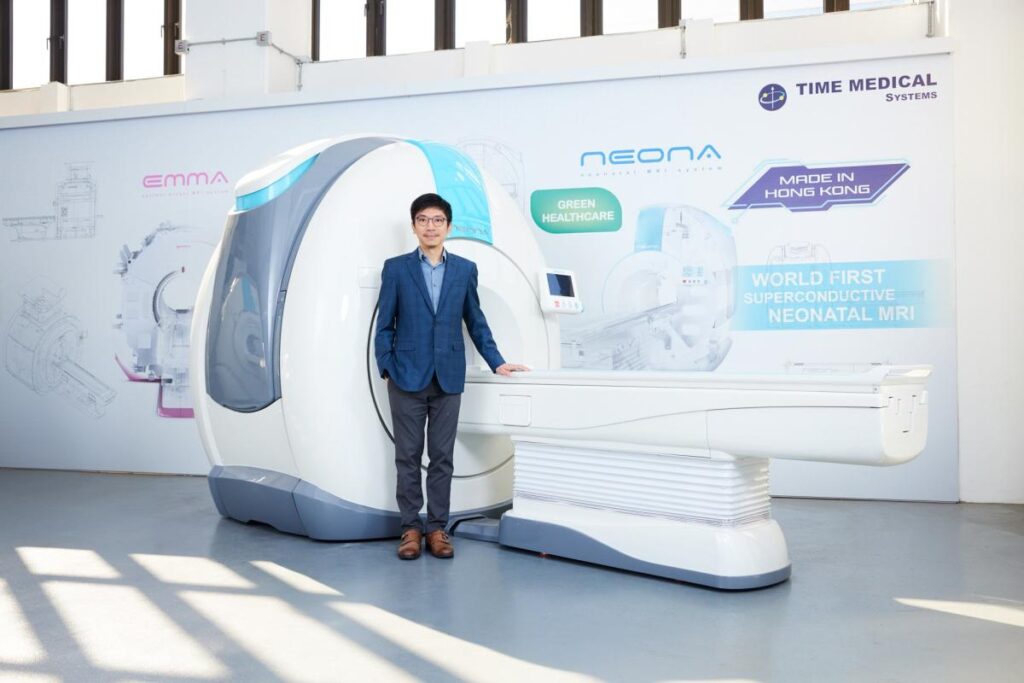Hong Kong offers strong regulatory support for foreign companies seeking to establish operations in the city, some investors said. Its role as a bridge between mainland China and global markets also boosts its appeal as a hub for medical technology companies.
That’s the case for Time Medical, a Hong Kong-based medical imaging company that spun off from Columbia University, said Simon Yeung, chief operating officer. The company faced a five-year approval process for its Magnetic Resonance Imaging (MRI) machine for babies in the U.S., but by doing preliminary work in Hong Kong, the process was whittled down to just a few months, he added.
That’s thanks to InvestHK, a government agency tasked with attracting foreign investment to the financial hub, which helped Yeung and his team get their business off the ground.
Do you have questions about the biggest topics and trends from around the world? Get the answers with SCMP knowledgeour new platform featuring carefully curated content with explanations, FAQs, analyses and infographics, brought to you by our award-winning team.
“We had a very good discussion with InvestHK so we knew in advance what we had to do,” Yeung said. “The preparatory work was done in Hong Kong, including all the testing and clinical trials,” which accelerated the screening process, he added.


Time Medical wants to install its MRI machines in local hospitals, says COO Simon Yeung. Photo: Handout alt=Time Medical wants to install its MRI machines in local hospitals, says COO Simon Yeung. Photo: Handout>
Time Medical is one of nine medical technology companies that InvestHK helped set up or expand their businesses in Hong Kong this year. The companies value Hong Kong for its connections, including initiatives in the Greater Bay Area which open doors to the medical technology market in mainland China.
The “medical connect” program, introduced in 2020, allows Hong Kong-registered medicines and medical devices to be used in eligible medical facilities in the Bay Area. However, they must first meet “clinically urgent” criteria and already be in use in Hong Kong public hospitals.
Thanks in part to the plan, Time Medical is in talks with two local public hospitals to install its MRI systems, which would pave the way for use in mainland China, Yeung said. Production of the company’s neonatal MRI system, which is the largest segment with pre-orders from around the world, has begun at its Tai Po InnoPark facility.
So far, the nine medtech companies have collectively invested HK$60 million (US$7.7 million) in setting up stores in the city and created about 120 jobs, said Andy Wong, head of innovation and technology at InvestHK.
He added that investors can tap into an extensive network of universities, hospitals and research centres, plus various collaboration and financing schemes.
Hong Kong’s role as a gateway to the Asia-Pacific market is a bonus, said Dilip Parmanand, CEO of Koning HK, a unit of U.S. computed tomography, or CAT scan, maker Koning Health. His company wants to introduce its breast imaging device to other markets, such as Thailand and Malaysia.
“Hong Kong is seen as a highly regulated city for companies in finance, technology and medicine,” Parmanand said. A medical device used in Hong Kong will reassure other markets in the region about its safety and quality, he added.
This article originally appeared in the South China Morning Post (SCMP)the most authoritative voice covering China and Asia for over a century. For more SCMP stories, explore the SCMP app or visit the SCMP’s Facebook And Twitter pages. Copyright © 2024 South China Morning Post Publishers Ltd. All rights reserved.
Copyright (c) 2024. South China Morning Post Publishers Ltd. All rights reserved.







